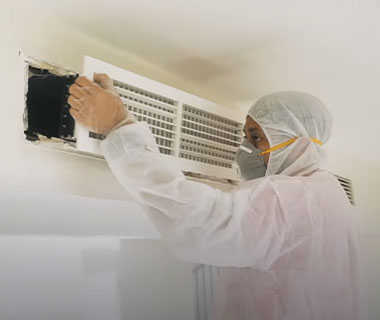Don’t pour grease down the drain.
Got some grease to dispose of and your drain’s in sight? The worst thing you can do is pour grease all the way down the drain. It’s horrible for your drain and can cause a big mess in your pipes. So think twice before you do so.
Reasons why grease is horrible for your drains:
-Once the grease cools down it dries up in the pipes and causes a clog full of debris and gunk. This causes blockages, slowing down the draining process.
-Your plumbing bills are bound to rise over time if you keep doing this. A little bit of grease on your plates might seem innocent enough, but this could cause havoc in your pipes.
-As a result of faulty plumbing, your water bills will also increase by a lot. Any drips and leaks waste water and make your plumbing system inefficient.
-Your local plumbing system is also at risk due to grease drainage. The whole system can become spoiled.
How to ensure that grease doesn’t go into your drains
From bacon grease to lard, anything that becomes solid once more when exposed to normal temperatures shouldn’t be put down your drain. Even oils such as vegetable oil, canola oil, sunflower oil, or olive oil, shouldn’t go down the drain. So, if you have an expired oil bottle, don’t pour it down your pipes under any circumstance.
Here are some tips on how you can get rid of grease. A reminder for you once again, don’t pour it down the drain.
Grease
In case the grease is piping hot still, put it into a container that you have kept for leftover greases, such as a can or jar. A mason jar is good or even a small bin with a removable lid. Make sure to choose something that’s easy to wash later. When these fill up, scoop out the dried-up grease and throw it into your main trash bin or the one outside your house. Another method is waiting for the grease to fully solidify on your pan and then wiping it away with wet wipes.
Oils
The first step towards safety is making sure that the cooking oil becomes fully cool before doing anything. If the oil is only a few spoons or less than a cup, put some tissues inside your trash can and throw the oil in this. However, in larger quantities, you can pour the oil into a dedicated jar and reuse this for cooking next time. If this isn’t your cup of tea, use plastic bottles instead (water bottles are a good choice), and pour the oil in there until it’s full. Then, throw it away.
While these tips are handy what if you already poured grease and oil down?
The best way to tackle this is through drain cleaning. Drain cleaning can be done through various methods. In some situations, you might even need to call in experts.
Here are some tips on how to clean your drain:
Hot water
Pour boiling hot water down your drain. Sometimes, it’s just what you need to remove clogs and improve performance. Hot water breaks down debris, especially grease, and flushes it all the way down. The best way to do this is to keep your tas open at boiling temperature and point it at your drains, for at least 15 minutes. If everything goes well, the buildup will disappear from your drains, and your pipes will go back to normal.
Try using the tools you have
Some tools in your box will help you with your situation. But please be aware that you should only try this if the job is not too serious and looks manageable. A plunger is one such tool, and a sink plunger is perfect for clearing out the grease. To remove grease, cover the drain opening with the plunger and then move it up and down constantly for around a minute. Don’t use excessive force as it could ruin your pipes. Steady pressure does the trick.
Liquid cleaners at home
You can make liquid cleaners at home with a simple formula. Simply merge vinegar and baking soda. This is something you might have in your pantry. Pour them down the drain and watch the magic unfold. What happens is that the debris within breaks down while protecting the structure of your pipes. The ideal amount to pour would be one cup of each, and after five minutes, boiling water. If successful, this technique should clear out all that extra debris easily, and also save you costs in the long run.
Drain snake
Drain snakes are great and handy tools to remove clogs in your drain. Used most often by professional plumbers, they are found at your hardware store and are wonderful for removing debris and blockages with ease.
To use a drain snake, let it go through your drain pipes and turn the handle in a clockwise direction until it meets the blockage. Keep rotating against the clog as the snake collects and absorbs the debris. Pull it out slowly along with the material. Put back your drain cover.
Tips to ensure that your drain’s always in top shape
1) Keep clogs out of the way. Ensure that you have useful drain covers that keep debris from your pipes.
2) As the article suggests, don’t pour grease down the drain and neither should you let oil go down your pipes.
3) Get your pipes checked regularly to ensure that there are no serious blockages.
Now you know why we say “don’t pour grease down the drain”.
Our experts have faced several situations where customers have done this exact mistake and their plumbing system needed to be replaced as a result. As such, don’t pour grease and oil down the drain. There are other ways to dispose of these, as mentioned in this article.
An important point to note is getting experts to check your plumbing systems regularly. It’s important to enter into an annual maintenance contract with a professional company such as Octopus, which not only looks after your plumbing but also takes care of other issues such as repainting, electrical problems, and AC maintenance. The advantage of hiring a licensed and insured plumber is the fact that you will be assured of completely professional service without taking on any liabilities.
To find out more, contact us at 800 3993. Our representatives will be happy to get back to you.



